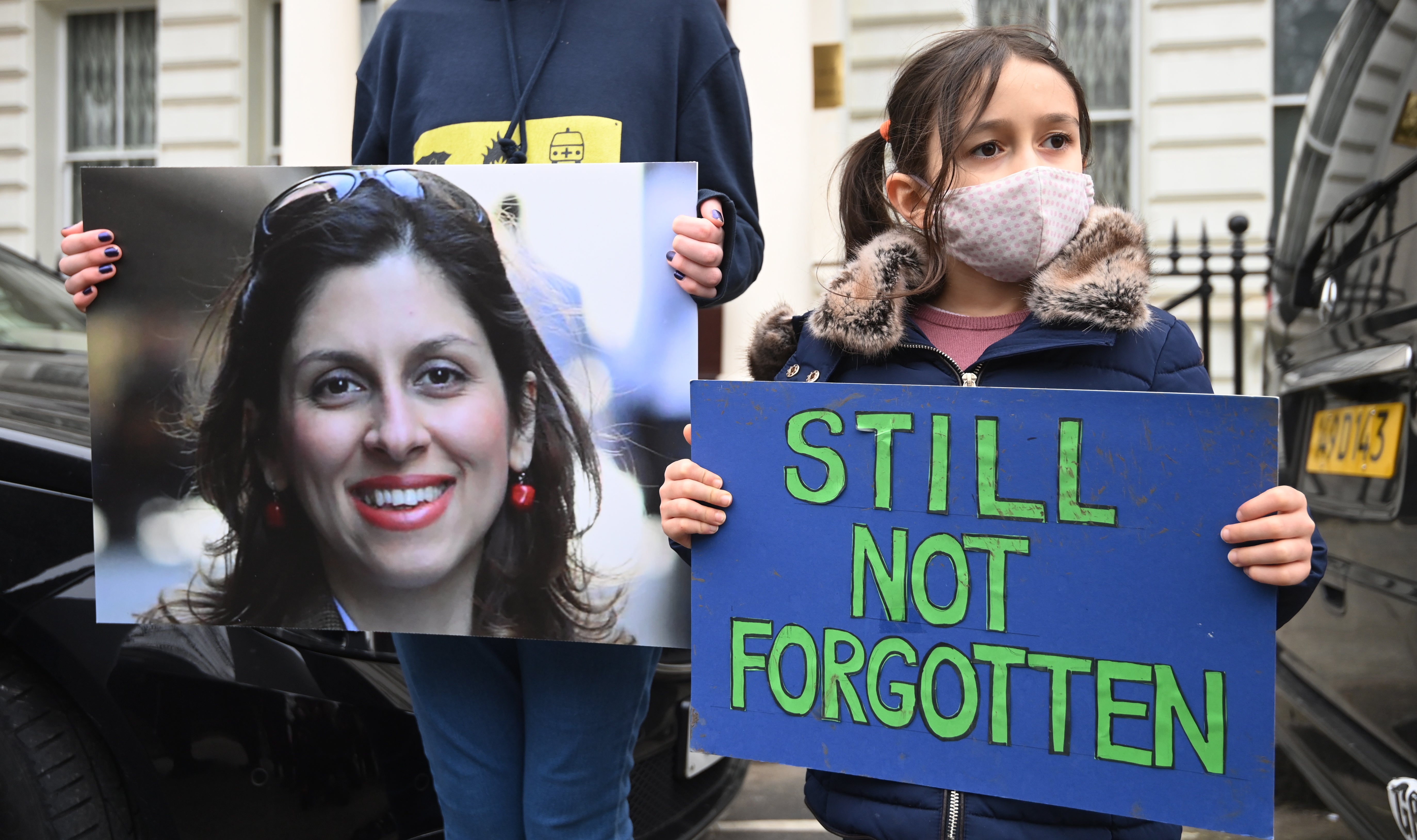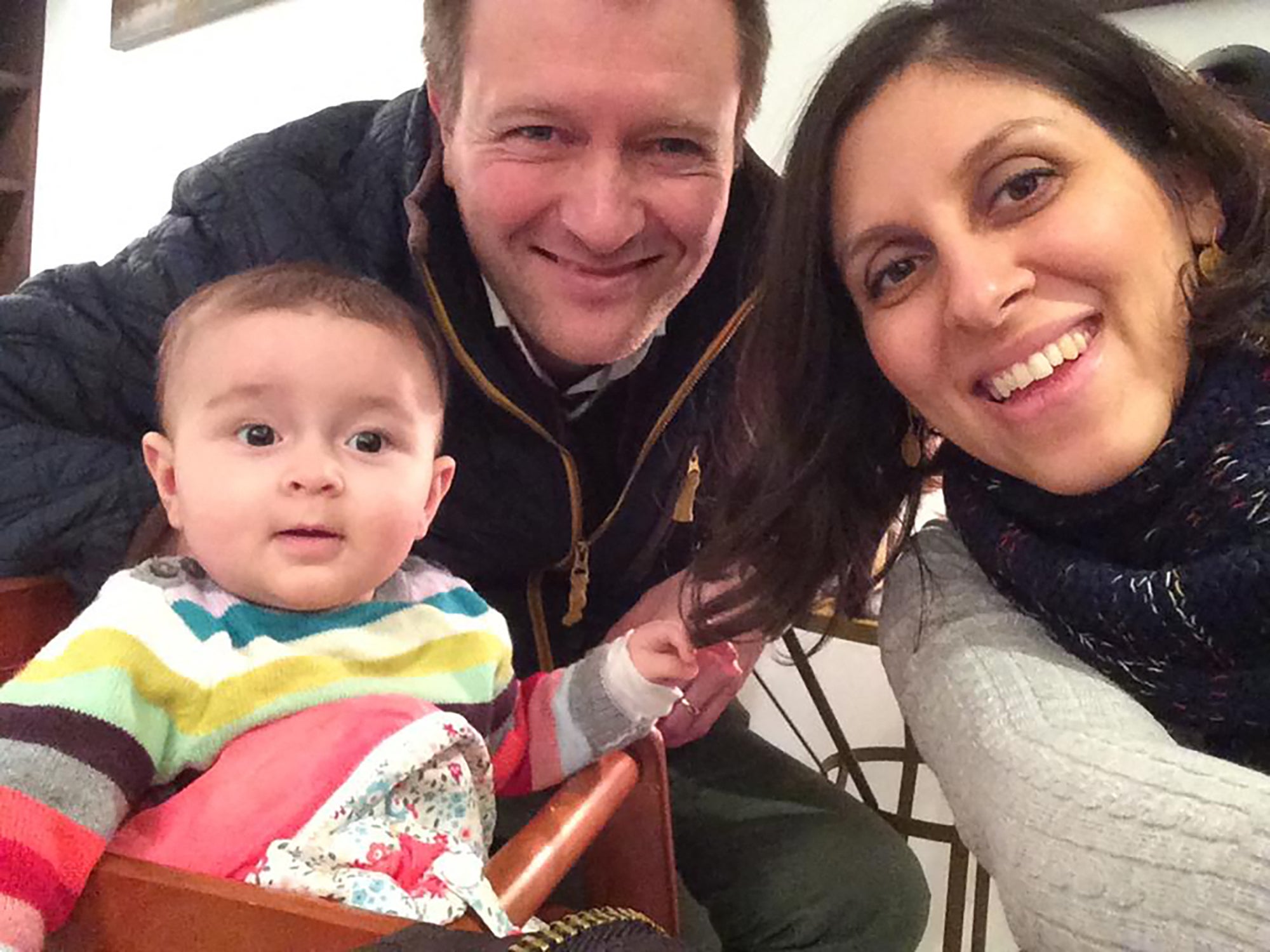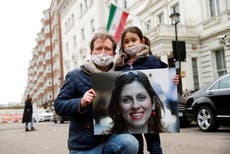Nazanin Zaghari-Ratcliffe’s long wait for freedom continues but lawyers stay hopeful
Despite new charges, political manoeuvring, and condemnation of Iran, Nazanin Zaghari-Ratcliffe’s legal team remains optimistic she will be free soon, reports Diplomatic Editor Kim Sengupta


For Nazanin Zaghari-Ratcliffe and her family, the long wait to learn whether she will be freed to return home to England continues with her facing a new set of charges in Iran.
This is another setback for the aid worker, who was only released from house arrest last weekend after serving a five year sentence, but is not allowed to leave the country with further legal proceedings pending.
There has been no official statement from the prosecutors about the next step. However Ms Zaghari-Ratcliffe’s lawyers – and, it is believed, those close to her in Iran – are said to be hopeful that she will be cleared of the new charges in a relatively short time.
Ms Zaghari-Ratcliffe’s lawyer, Hojjat Kermani, told Iranian media after a brief hearing: “Her trial was held at branch 15 of the revolutionary court. Her charge is propaganda against the system.
“The trial was held in a calm atmosphere with the presence of my client. The legal defence was made and the final defence was taken; I am very hopeful that she will be acquitted. Legally, the court should announce the verdict in a week but it is up to the judge.”
Last Thursday the British embassy in Tehran requested permission to attend the hearing. This was refused by the Iranian authorities, as was a request for a transcript of the proceedings. British diplomats in Tehran will continue to press the Iranian authorities for the new charges to be dropped, says the Foreign Office.
Foreign secretary Dominic Raab said: “It is unacceptable and unjustifiable that Iran has chosen to continue with this second, wholly arbitrary, case against Nazanin Zaghari-Ratcliffe. The Iranian government has deliberately put her through a cruel and inhumane ordeal. Nazanin must be allowed to return to her family in the UK without further delay. We continue to do all we can to support her.”
Iran does not recognise dual nationality and holds that Ms Zaghari-Ratcliffe is an Iranian citizen. Attempts by the UK to represent her interests are considered by the authorities to constitute foreign interference in Iran’s internal affairs. Former foreign secretary, Jeremy Hunt, announced in March 2019 that Ms Zaghari-Ratcliffe would be given diplomatic protection, but this has not yielded much on the ground.
The allegations of disseminating propaganda include Ms Zaghari-Ratcliffe taking part in a demonstration outside the Iranian embassy in London in 2009, and speaking to BBC Persian, a network the Iranian government considers to be hostile and has accused of spreading disinformation.
These allegations have been raised a number of times by Iranian officials in the past, and were mentioned at Ms Zaghari-Ratcliffe’s first trial. The authorities warned about the second set of charges four years ago and have done so on subsequent occasions, one being in September last year, but have desisted from going through with them.
International realpolitik, it is widely accepted, is a key factor in what has happened to Ms Zaghari-Ratcliffe – in particular the issue of £400m plus interest owed by the UK to Tehran over arms purchases made by the Shah of Iran’s government in the 1970s.
Iran’s President Hassan Rouhani raised the matter of the money in a telephone call with Boris Johnson last week.

The UK’s position is that it cannot pay the debt because of sanctions placed on Iran. However the US paid back $1.6bn for a cancelled arms deal in 2016, and the Biden administration gave the go-ahead this month for the release of $6bn (£4.3bn) of Iranian funds frozen in Iraq due to American sanctions. This follows similar moves over $9bn (£6.5bn) in Iranian money held in South Korea.
Sir Simon McDonald, the outgoing permanent undersecretary at the Foreign Office, said recently that Britain is actively seeking to pay Iran back the money through the channel of humanitarian assistance, which is not subject to sanctions.
He said: “We acknowledge it is Iranian money and it does have to go back to Iran. A key complication is that Iran is subject to very comprehensive sanctions, so how this money is repaid is part of the story.” He added that “huge imagination and effort has gone into this”.
The next hearing in the legal action over the payment is due next month, McDonald pointed out.
And while he continued to repeat the official government line that the two issues are unrelated, the widespread view is that paying Iran back its money will help in obtaining the long overdue final release of Ms Zaghari-Ratcliffe.


Join our commenting forum
Join thought-provoking conversations, follow other Independent readers and see their replies
Comments